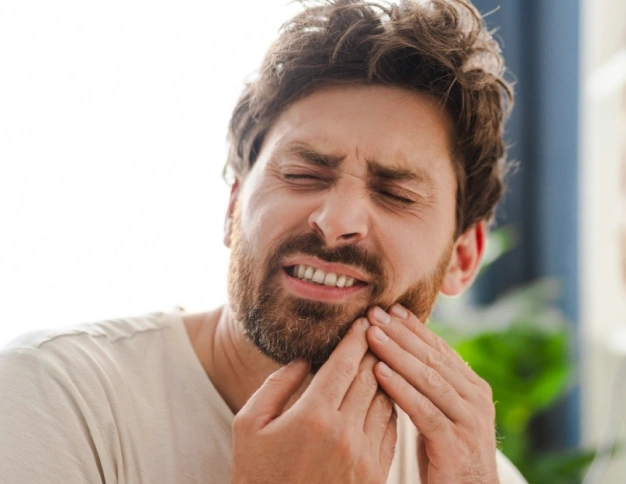
Urgent Dental Care for Emergencies
Dental emergencies can be alarming and often come with intense pain. Quick treatment is crucial to relieve discomfort and give your teeth the best chance of recovery.
Teeth may become fractured due to trauma, grinding, or biting on hard objects. In some cases, fillings, crowns, or other restorative devices can be damaged or dislodged. If you experience severe pain, it’s important to contact our office right away. Without timely care, pain typically intensifies, and untreated dental issues can pose serious risks to your overall health.
Types of Dental Emergency and How to Deal With Them
Avulsed Tooth (Tooth Knocked Out)
If a tooth is completely knocked out, it’s crucial to see a dentist right away. When a tooth is dislodged, the surrounding tissues, nerves, and blood vessels are damaged. If the tooth is reinserted into its socket within an hour, there is a chance the tissues can regenerate and reattach to support the tooth.
Here are some steps to take:
- Call our office immediately.
- Pick up the tooth by the crown and rinse it gently under warm water—avoid touching the root.
- If possible, try to place the tooth back into its socket. If you can’t, store it in the cheek pouch.
- If reinsertion isn’t an option, place the tooth in a cup of milk, saliva, or, as a last resort, water. It’s vital to keep the tooth from drying out.
- Get to our office as quickly and safely as possible.
We will attempt to reinsert the tooth into its natural socket. In some cases, the tooth may reattach, but if the internal structures of the tooth are severely damaged, root canal therapy may be required.
Lost Filling or Crown
A crown or filling typically comes loose while eating. Once it is dislodged, the affected tooth may become highly sensitive to temperature changes and pressure. Crowns usually loosen due to underlying decay, which alters the shape of the tooth and causes the crown to no longer fit properly.
If a crown falls out, schedule a dental appointment as soon as possible. Keep the crown in a cool, safe place, as there may be a chance to reattach it. Prolonged time without the crown can cause the teeth to shift or suffer additional damage.
If we're not immediately available, follow these steps:
- Apply clove oil to the affected tooth to help ease the pain.
- Clean the crown and secure it onto the tooth using dental cement, which can be found at most pharmacies.
- If the crown is lost, apply dental cement directly to the top of the tooth to reduce discomfort.
- DO NOT use regular glue to attach the crown.
We will examine the crown to determine if it still fits. If it does, we will reattach it to the tooth. If decay is present, it will be treated, and a new crown will be created.
Cracked or Broken Teeth
Teeth are strong, but they can still fracture, crack, or break. Some fractures may be relatively painless, but if the crack extends into the root, the pain can be severe. These issues can take various forms and are usually caused by trauma, grinding, or biting. If a tooth is fractured or cracked, it's essential to schedule an appointment as soon as possible for treatment.
If we're not immediately available, follow these steps:
- Call our office immediately.
- Rinse both the tooth fragment and your mouth with lukewarm water.
- If there is bleeding, apply gauze to the area for about 10 minutes.
- To reduce swelling and pain, place a cold, damp cloth on the outside of your cheek.
- If you can't see us right away, cover the affected area with over-the-counter dental cement.
- Take a topical pain reliever to help manage discomfort.
The extent of the break or fracture will determine the treatment options. If the crack or fracture extends into the root, root canal therapy is often the best option to save the tooth. In the case of a complete break, your dentist will typically reattach the fragment to the tooth as a temporary solution.
Dislodged/loose Teeth
If a tooth has been dislodged or loosened from its socket due to trauma or decay, there may still be a chance to save it. If the tooth remains in the mouth and is still attached to the blood vessels and nerves, there's a good possibility that root canal therapy won't be needed.
It’s crucial to contact our office right away to schedule an appointment. In the meantime, apply a cold compress and take over-the-counter pain relievers to manage discomfort. Your dentist will reposition the tooth and use splints to stabilize it. If the tooth doesn’t heal properly, root canal therapy may be necessary.
If you have questions or concerns about dental emergencies, please contact our office or call at (813) 752-5600.
